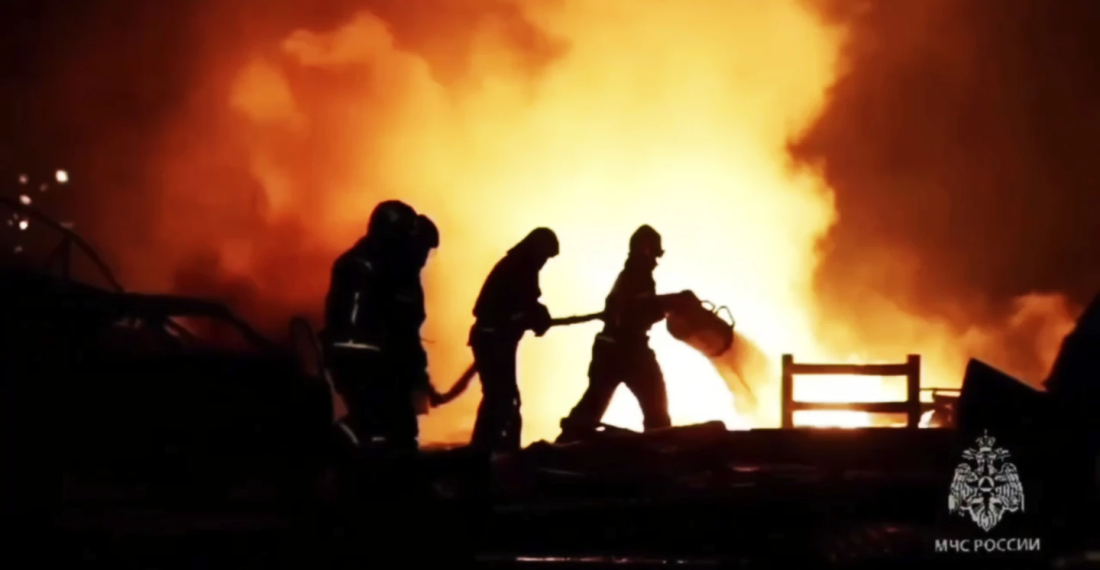At least 27 people are confirmed to have been killed in a huge explosion and fire at a petrol station in the Republic of Dagestan in southern Russia on Monday (14 August).
The explosion happened in the regional capital Makhachkala at 21.40 local time. Over 100 people are understood to have been injured in the incident, which is believed to have occured after a fire started in a nearby car repair workshop and spread to the petrol station, causing the explosion. Three of those killed were children, Dagestan’s governor Sergei Melikov said.
Russia's Ministry of Emergency Services has said some 260 emergency workers have been deployed to the scene and the seriously injured are being evacuated to Moscow for medical treatment.
Dagestan's authorities have said that families of the victims will receive 1 million rubles (around $10,000) each, while families of the injured will receive between 200,000-400,000 rubles (about $2,000-$4,000).
Tuesday in Dagestan has been declared the day of mourning.






